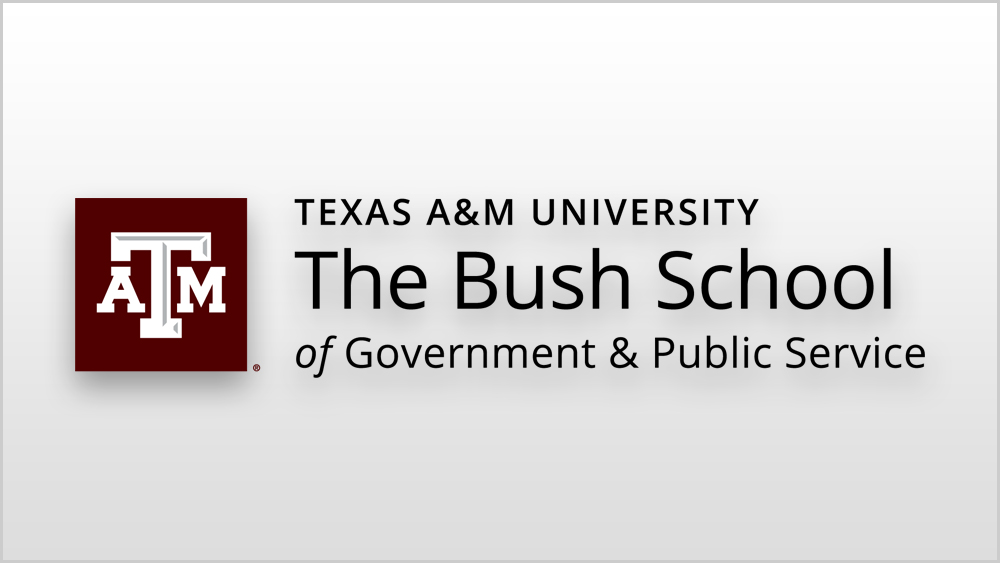
Historically, the focus of democracy promotion has been to support countries in a transition from authoritarian to democratic governance, with an assumption that further democratic consolidation would follow. Recent trends from across the developing and developed world have led us to question this assumption. Once stable democracies are witnessing executives taking greater power, civil society being repressed and opposition voices being stamped out. The future of democracy in these nations is uncertain.
Students at the Bush School of Government and Public Service at Texas A&M University are studying the causes and effects of this phenomenon known as democratic erosion as part of a capstone course that all students must complete to graduate.
Democratic erosion, or democratic backsliding occurs when governments become less accountable to their citizens and institutions begin to collapse. This doesn’t necessarily imply a complete transition to full authoritarianism, but the democracy weakens in a state, explains Dr. Jessica Gottlieb, Assistant Professor at the Bush School and faculty adviser of the capstone.
The capstone team is working for the United States Agency for International Development (USAID) to create two different deliverables. One deliverable is an experimental literature review over programs that may contain lessons for democratic erosion or strengthening democracies. But the primary deliverable is a database the team is creating that will code events related to the causes and consequences of democratic erosion worldwide.
Chris Hill, a second-year Bush School student who is part of this capstone team said they are looking at different patterns of symptoms, precursors and how countries resist democratic erosion when they are coding each country.
“The main deliverable that we’ve been working on dovetails with the fact that this capstone is part of a much larger collaborative course on democratic erosion.
The raw data that’s generating the dataset – case studies on eroding democracies—is being produced by students who are taking this class at 20 other universities across the country.” said Gottlieb. There is one university in the Philippines teaching this class, making it a global endeavor. This larger effort has recently earned attention in an article written by the Washington Post titled “Trump’s presidency has prompted a new, nationwide college course on why democracies collapse.”
Democratic Erosion Capstone
Texas A&M University, Bush School of Government & Public Service
Client: USAID’s Center of Excellence on Democracy, Human Rights and Governance (DRG)
Instructor: Dr. Jessica Gottlieb
Background
Master’s students at Texas A&M’s Bush School of Government & Public Service complete a “capstone” course in their final semester in which they conduct policy research for a client, in this case, USAID’s Democracy, Human Rights and Governance (DRG) division. The theme of the capstone is “Democratic Erosion” and together with the client, they identified two deliverables detailed below. The students, under the guidance of the instructor, will work on these deliverables in the 2018 spring semester and produce both written reports and oral presentations reflective of their work. Presentations will be scheduled in Washington, DC in early May 2018.
Deliverables
1. A database coding country case studies of democratic erosion.
While there has been substantial theoretical work on how and why democracies erode, an important gap we have identified is systematic empirical evidence that would allow us to ask applied questions such as how democratic erosion might manifest differently in different places, or what systematic precursors of democratic erosion might be. To help fill this gap, the capstone group will create a country-year dataset that codes events related to democratic erosion in about 70 countries that we have identified as potentially backsliding over the last decade. We will code events that are either precursors to democratic erosion, e.g. economic or security shocks, and events that are symptoms of democratic erosion, e.g. executive aggrandizement or systematic attacks on the free press.
What facilitates this coding exercise is our collaboration with a 20-university initiative in which instructors are all teaching the same course on Democratic Erosion to a mix of undergrad and grad students at their respective universities. One of the common course assignments is to write a case study of democratic erosion for one of our pre-selected country cases that we have identified as potentially backsliding (using indicators from the Varieties of Democracy database). This will result in several case studies for each country on our list, which will then be systematically coded by the capstone students.
A report will produce some preliminary analyses using the dataset, but the data itself will also be made publicly available so that others can conduct their own analyses.
2. A review of the experimental evidence relating to democratic erosion.
The group will additionally undertake a systematic mapping review of the experimental evidence on issues related to democratic erosion. While only a subset of questions with respect to democratic erosion can be answered using experimental manipulation, there are key areas where substantial evidence has begun to accrue. For instance, there has been experimental work documenting the effect of civic education courses on trust and participation in democracy – something that could potentially prevent or curb democratic erosion. There has also been work on improving the effectiveness of and reducing corruption in bureaucracies. To the extent that democratic stability is undermined by a lack of state legitimacy, these results can also be informative to the study of democratic erosion. A report will map the existing literature under several thematic areas related to democratic erosion; describe key characteristics of the evidence base, e.g. the countries, populations and interventions studied; and synthesize findings and policy implications within each thematic area.
